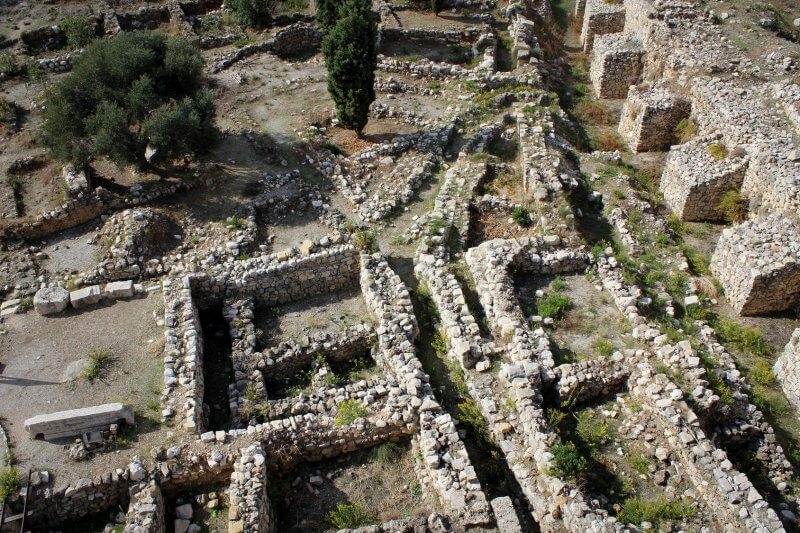Definition of Peoples of the Sea
Miscellanea / / November 13, 2021
By Guillem Alsina González, in Apr. 2018
 It is not known where they came from, but they convulsed the entire ancient Middle East and, as mysteriously as they came, they disappeared into the mists of history, although recent research has highlighted the possible relationship between historical populations and these, the called "from sea”.
It is not known where they came from, but they convulsed the entire ancient Middle East and, as mysteriously as they came, they disappeared into the mists of history, although recent research has highlighted the possible relationship between historical populations and these, the called "from sea”.
The calls Peoples of the sea were a group of populations that migrated, by sea, from the Black Sea to Egypt, traveling all over the current Turkish, Lebanese and Israeli coastline, conquering and plundering in its path, approximately in the year 1,200 to. C.
It seems to be - and I say it seems because the documentary sources of the time are scarce - that they caused a great commotion wherever they happened; Thus, for example, they literally ended the civilization Mycenaean, and were about to conquer Egypt.
Their exact origin and ethnic composition are unknown, as are the reasons for their migration.
It is not uncommon to see a migration of an entire people in ancient times: the Romans witnessed migrations of Germanic or Gallic tribes, while in Greece the formation of the classical culture and its corresponding religion, from the fusion of the local culture with several waves of migrations of entire peoples, such as the Dorians.
The devastation of these warrior peoples begins in Mycenae.
The Mycenaean civilization is their first victim, which they literally wipe off the map. That is what is most surprising about the peoples of the sea: they do not occupy the land they conquer, but simply devastate, destroy everything in their path.
Crete will follow Mycenae; They are undoubtedly peoples of the sea, arriving by boat and attacking the coastal areas, sweeping everything in their path.
It is said that, historically, these could be the peoples that ended Troy, giving rise to the epic that Homer would relate.
It is not a hypothesis proven, but it is feasible, and would have to be combined both with a memory of the population Greek, as with the settlement of individuals or some of these peoples of the sea (which seems to be a federation of various peoples) in Greek lands.
Ugarit, another powerful city on the Syrian coast, also disappears by the hand of these peoples of the sea.
But the most beastly work (in the most pejorative sense of the term) of these anonymous warriors had yet to come ...
The Hittite Empire, which had fought face to face with mighty Egypt, also succumbed.
This is a large-scale work, an army cannot destroy a great military empire if it does not have well-organized and well-equipped soldiers.
It is also speculated that the Peoples of the Sea were responsible for the Hittite sinking on the coast, but that other peoples took advantage of their weakness to attack them inside their territory, which would imply that the Peoples of the Sea were not solely responsible for its downfall.
After finishing with Hatti, they devastated Canaan, and then went to Egypt.
Although the kingdom of the pharaohs meant the defeat of the Peoples of the Sea and the end of the threat To civilization as a whole, Egypt did not fare well in victory: it lost Canaan forever.
It is in this military campaign led by Pharaoh Ramses III that the first naval battle recorded in the history (previously, Ramses II had defeated the Hittites at Cadesh, in the first recorded battle for the story).
Although the threat had been averted, these wandering peoples had done great damage, and they also left their mark later.
The Philistine people descend from one of the Peoples of the Sea, who settled in the area known as Canaan.
In this way, those who did not die in battle or were taken prisoners (especially in the decisive battle of the Nile delta with the troops Egyptians), settled in some of the attacked places, giving rise to new populations or mixing with existing ones to give rise to something new.
In the case caused by their actions, the basin The eastern Mediterranean saw a time when once flourishing commercial and diplomatic relations between kingdoms practically disappeared.
Photo: Fotolia - 2trip
Topics in Sea Towns


